This article was medically reviewed by Erik Kramer, DO, MPH. Dr. Erik Kramer is a Board-Certified Primary Care Physician at the University of Colorado. With over 15 years of experience, his clinical interests include obesity and weight management, diabetes care, and preventive care, as well as embracing a holistic approach to primary care. He received his Doctorate in Osteopathic Medicine (D.O.) from the Touro University Nevada College of Osteopathic Medicine and completed his residency at Central Maine Medical Center. Dr. Kramer is a Diplomate of the American Board of Obesity Medicine.
This article has been viewed 53,003 times.
Having cracks in your tongue is a sign of a condition known as fissured tongue. Though it’s usually harmless and benign, it can cause a burning sensation and could lead to a potential infection if food particles get lodged between the cracks. It can also be unsightly and embarrassing. Fortunately, fissured tongue often doesn’t require any medical treatment and you can heal the cracks on your own with a few healthy habits. However, if your tongue shows signs of an infection, or you’re unable to heal the cracks on your own, you’ll need to visit your doctor for treatment.
Steps
Practicing Good Oral Hygiene
-
1Brush your teeth at least twice a day to keep your mouth clean. The best way to heal cracks in your tongue is to keep your mouth clean. Brushing your teeth is a critical part of good oral hygiene, allowing you to remove food and debris from your teeth, gums, and tongue. Use a fluoride toothpaste and a toothbrush that’s comfortable for you and brush your teeth in a circular motion for at least 2 minutes. Brush your teeth at least twice a day to help your tongue heal.[1]
- Make it a habit to brush your teeth in the morning and before you go to bed each night.
Tip: To speed up the healing process, brush your teeth after each meal prevent food from getting caught in the cracks.
-
2Scrub the surface of your tongue when you brush your teeth. Whenever you’re brushing your teeth, turn the brush so the bristles are pointing down and scrub the surface of your tongue to remove any food or debris in the cracks. Keeping the cracks clean will reduce the number of bacteria in them, which will help your tongue heal.[2]
- It’s always a good idea to scrub your tongue when you brush your teeth, even when there aren’t cracks in it. It helps keep it clean and it makes your breath smell better!
Advertisement -
3Floss at least once a day to remove bits of food from between your teeth. Flossing is an important part of maintaining oral hygiene, and it helps you get any stubborn pieces of food or debris out from between your teeth and gums. Use waxed dental floss and wrap the ends around your middle fingers. Keep the floss taut and slide it between your teeth as far down as it goes to clean between your gums as well. Make sure you get all of your teeth to keep your mouth clean so your tongue can heal quicker.[3]
- Food lodged between your teeth and gums can harbor bacteria, which love the warmth and dampness of your mouth and can spread over the surface of your tongue.
-
4Avoid using tobacco to keep your mouth healthy. Cigarettes and oral tobacco products, such as chewing tobacco and snus, are addictive, harmful for your overall health, and can cause cracks in your tongue. If you use any tobacco products, try to quit as soon as possible to live a healthier life and to help prevent cracks in your tongue.[4]
- Quitting will also help your tongue heal faster.
Seeking Medical Treatment
-
1Call your doctor if you have signs of an infection. If you have fissures or cracks in your tongue, then food and debris that enters your mouth can get caught in the cracks, potentially causing an infection. If you have red streaks on your tongue, your tongue is swollen and painful, or you have pus oozing out of the cracks, call your doctor right away. You may need to be prescribed an antibiotic as well as an oral antiseptic to get rid of the infection.[5]
- If you have a fever, it could also be a sign of an infection.
Warning: Infections can cause other serious medical issues if they’re left untreated. If you see signs of an infection, contact your doctor immediately.
-
2See your dentist for a deep cleaning to help heal your tongue. The best way to heal your tongue is to keep your mouth as clean as possible. If you’re struggling to maintain your oral hygiene or you want to get your tongue, teeth, and gums thoroughly clean, make an appointment with your dentist to get a deep cleaning.[6]
- Go to your dentist if your tongue shows signs of an infection.
-
3Talk to your doctor about the cracks in your tongue if you have psoriasis. Psoriasis isn’t just a skin condition. It’s a chronic inflammatory disorder that can also affect the tissue in your mouth, including your tongue. If you have psoriasis, it could be causing the cracks in your tongue. Your doctor will be able to recommend treatments and prescribe medications that can help manage the underlying psoriasis to heal the cracks in your tongue.[7]
- Your doctor can also recommend changes in your diet and lifestyle that may help treat your psoriasis and heal the cracks in your tongue.
-
4Contact your doctor if your tongue won’t heal after 2 weeks. Cracks that form in the tongue could be a sign of a vitamin deficiency or another underlying condition. If your tongue won’t heal despite practicing good oral hygiene, see your doctor. They’ll be able to examine your tongue and run tests to determine if there’s another cause. They’ll also be able to prescribe medications and special mouthwash to help heal the cracks in your tongue.[8]
- Your doctor may prescribe oral chlorhexidine, a strong disinfectant and antiseptic that you’ll gargle a few times a day to clean your tongue.
- If you have a poor diet, it could cause cracks in your tongue. Your doctor can test your blood to see if you have any deficiencies.
References
- ↑ https://www.mouthhealthy.org/en/az-topics/b/brushing-your-teeth
- ↑ https://www.ccjm.org/content/86/11/714.long
- ↑ https://www.ccjm.org/content/86/11/714.long
- ↑ https://pubmed.ncbi.nlm.nih.gov/26381370/
- ↑ https://pubmed.ncbi.nlm.nih.gov/27343960/
- ↑ https://www.ccjm.org/content/86/11/714.long
- ↑ https://pubmed.ncbi.nlm.nih.gov/28905102/
- ↑ https://www.ccjm.org/content/86/11/714.long
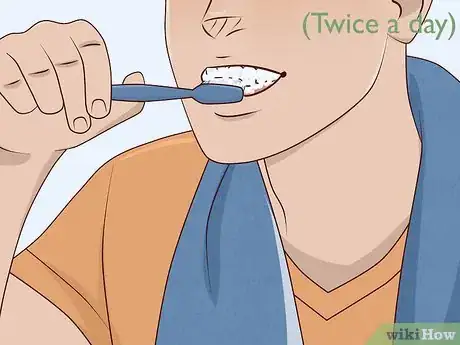
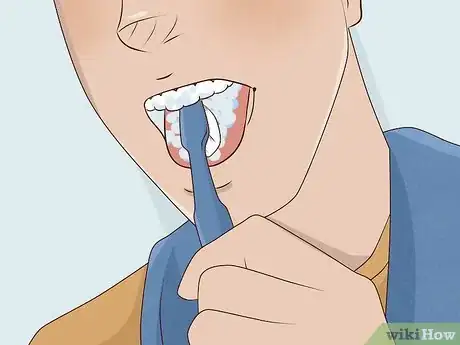
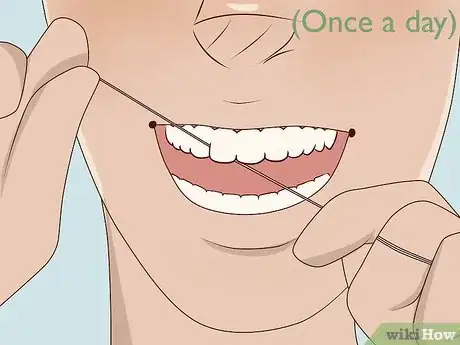
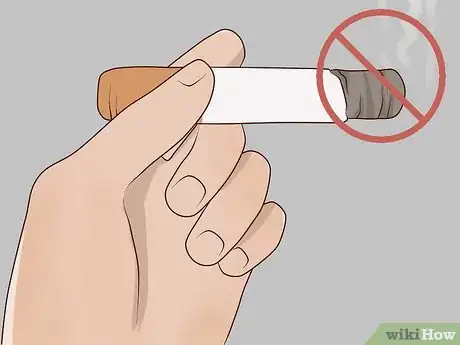

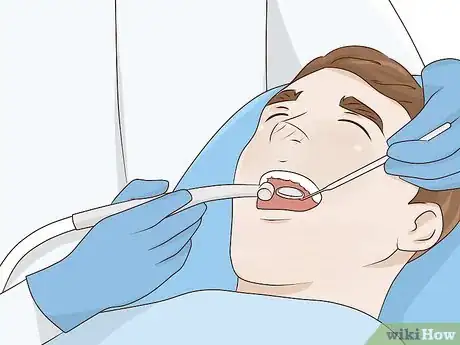
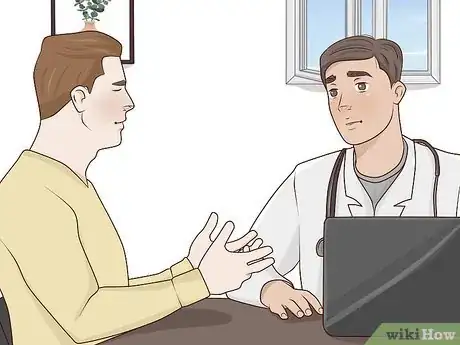
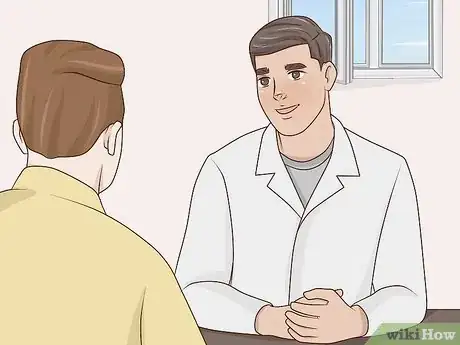

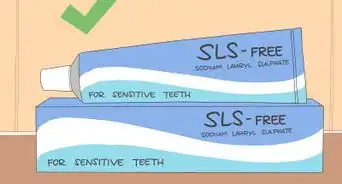
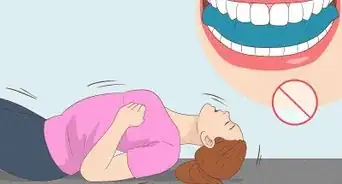

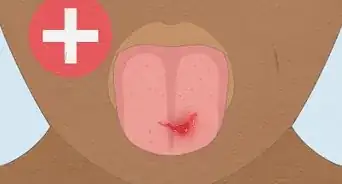
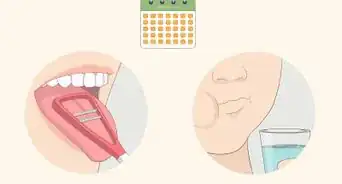

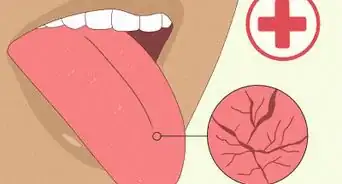




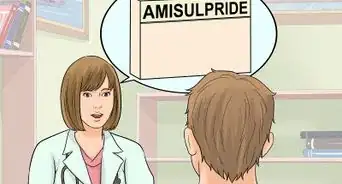









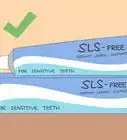





































Medical Disclaimer
The content of this article is not intended to be a substitute for professional medical advice, examination, diagnosis, or treatment. You should always contact your doctor or other qualified healthcare professional before starting, changing, or stopping any kind of health treatment.
Read More...